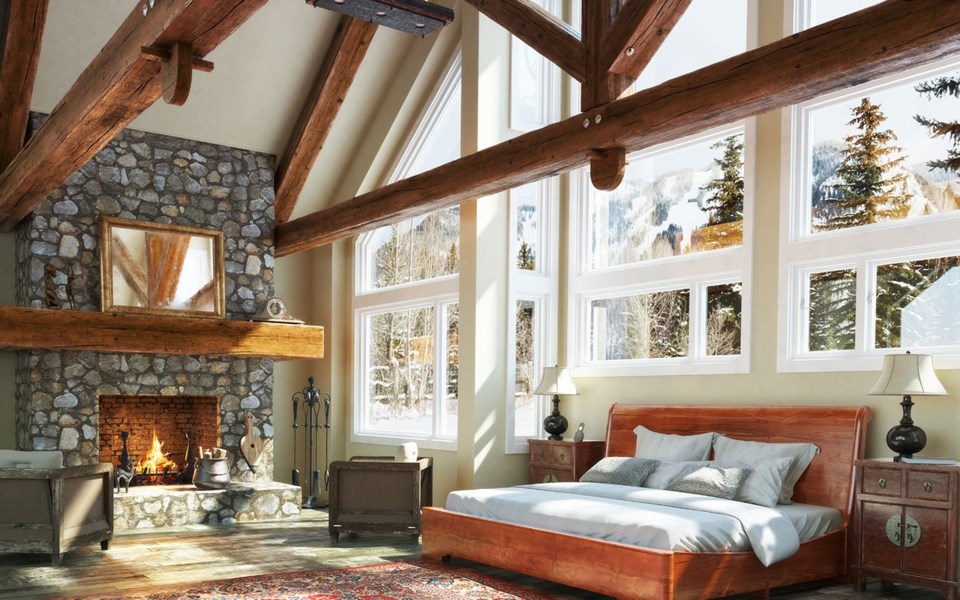Whistler has become more than a winter destination. With the year-round draw of its golfing, mountain biking and hiking options, this mountain village is the perfect retreat for its over two million annual visitors. Combine this with its booming tourism industry and rising cost of living, and Whistler becomes a tempting place to invest in a short-term rental property.
But like most popular travel destinations in British Columbia, Whistler comes with a host of factors to consider before investing in a short-term rental. Owners looking to rent out their homes first need to think about licensing and zoning regulations, as well as protecting their investment with insurance.
Whistler requires all property owners to have a business license before marketing their space to tourists. The municipality considers any property marketed as tourist accommodation that doesn’t have a license an illegal nightly rental. Business license fees are $165 per year, plus $10 for each additional accommodation unit that’s operated by the same license holder.
These new bylaws, which came into effect in 2017, allow the municipality to charge homeowners for marketing their rental posting without a license — no matter whether rental activity has taken place or not. Property owners who continue to advertise short-term rentals on networks like Airbnb, HomeAway or FlipKey without a license risk a $1,000 daily fine.
The property must also be zoned for tourist accommodation or temporary accommodation to be eligible for a business license. A property zoned in a residential area can’t be marketed to tourists for any length of time. Whistler provides an interactive zoning map on its website.
Nearby districts Squamish and Lillooet have followed suit. Short-term rentals require business licenses and are only permitted in areas specifically zoned for tourists. Vancouver became the first Canadian city to strike a deal with Airbnb earlier this year, which has resulted in slightly more flexible policies. The city requires hosts to get a business license before posting their unit, but does not require the unit to be in an area zoned for tourists. This means about 80 per cent of existing short-term rental listings in Vancouver became eligible to operate legally when the regulations went into effect in April 2018.
If owners can navigate Whistler’s red tape, the profits are promising. The average price for a two-person Whistler accommodation in August 2018, whether through Airbnb or other companies like HomeAway, FlipKey or VRBO, is between $200 and $400 per night. There’s no real down season in the village anymore, with 52 per cent of Whistler’s annual visitors staying during the summer months. The average monthly rental price for a one-bedroom apartment listed online varies wildly. A posting for a $6,000 one-bedroom condo in Whistler Village, for example, made headlines in January.
Options still exist for homeowners whose properties are in a residential zone but want to explore short-term rentals without risking nasty fines. Whistler’s Home Run program allows property owners to rent their homes to local businesses to provide affordable housing for the resort town’s workers.
Owners who sign up for Home Run can choose to have their property managed under the Whistler Housing Authority, who streamline the process by managing the lease agreement, rent payments and property upkeep. Others choose to manage the property themselves and simply have the program assist them with placing tenants. Lease options are flexible and start at just a two-month period.
No matter which option homeowners choose, hosting short-term guests and tenants opens up properties to sure-fire benefits — but also comes with its own unique set of risks. Short-term rental insurance is another must-do before diving into Whistler’s short-term rental market. After all, a condo’s strata only protects the building and its common areas. The belongings inside the property, any improvements the owners have made to the property, liability incidents and the potential loss of rental income are the owners’ responsibility to insure.
BCAA Home Insurance is an excellent option, particularly because they offer a short-term rental insurance add-on to their regular condo or townhouse insurance product. Their flexible coverage options are well-suited to the needs of a Whistler host, varying based on the type of unit, the number of units and the total days you plan to host annually.
Taking these extra steps before investing in a short-term rental may seem overwhelming, especially since online companies have streamlined the market like never before. But considering Whistler’s infinite tourist season — and low tolerance for rule-breakers — they’re steps worth taking.



